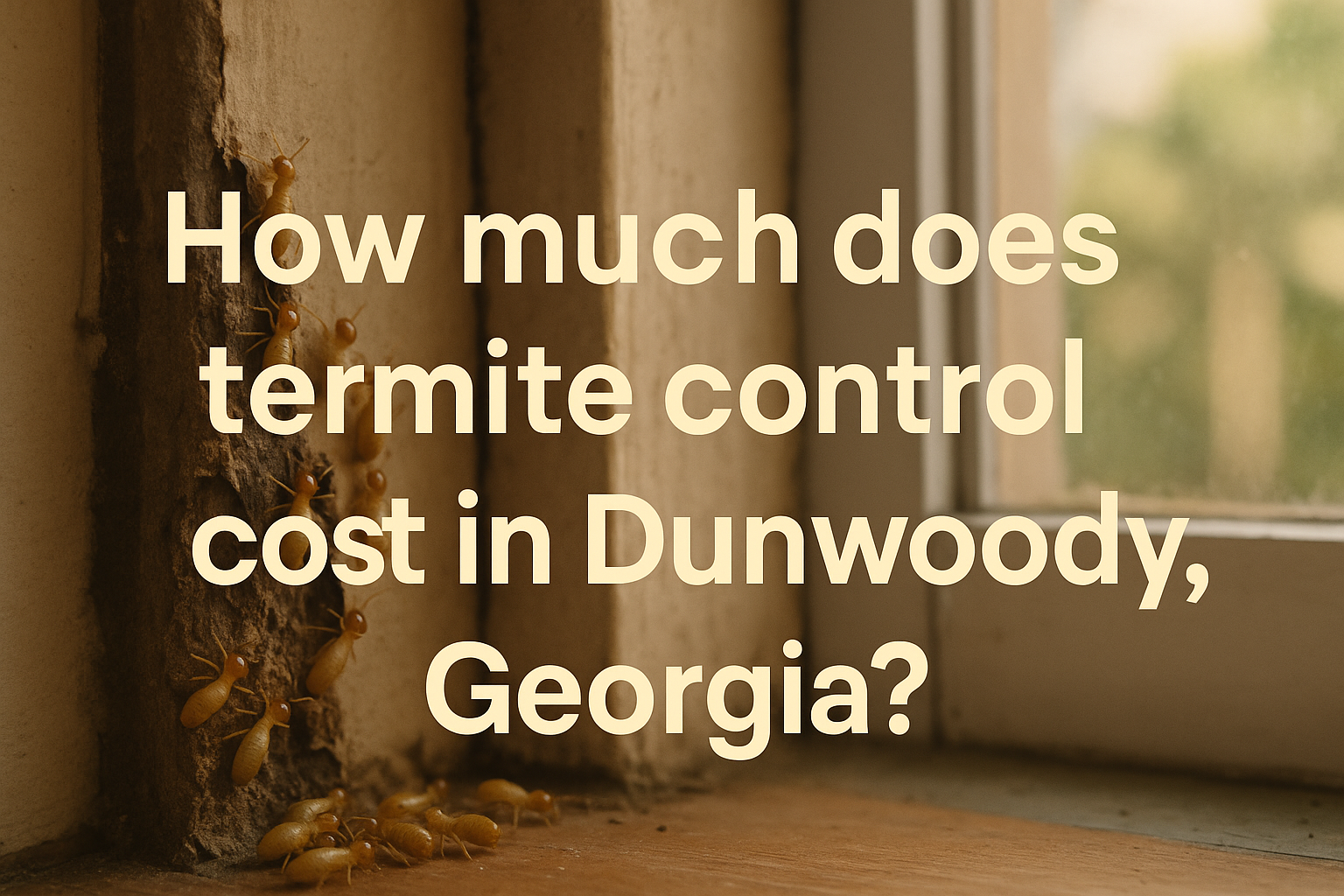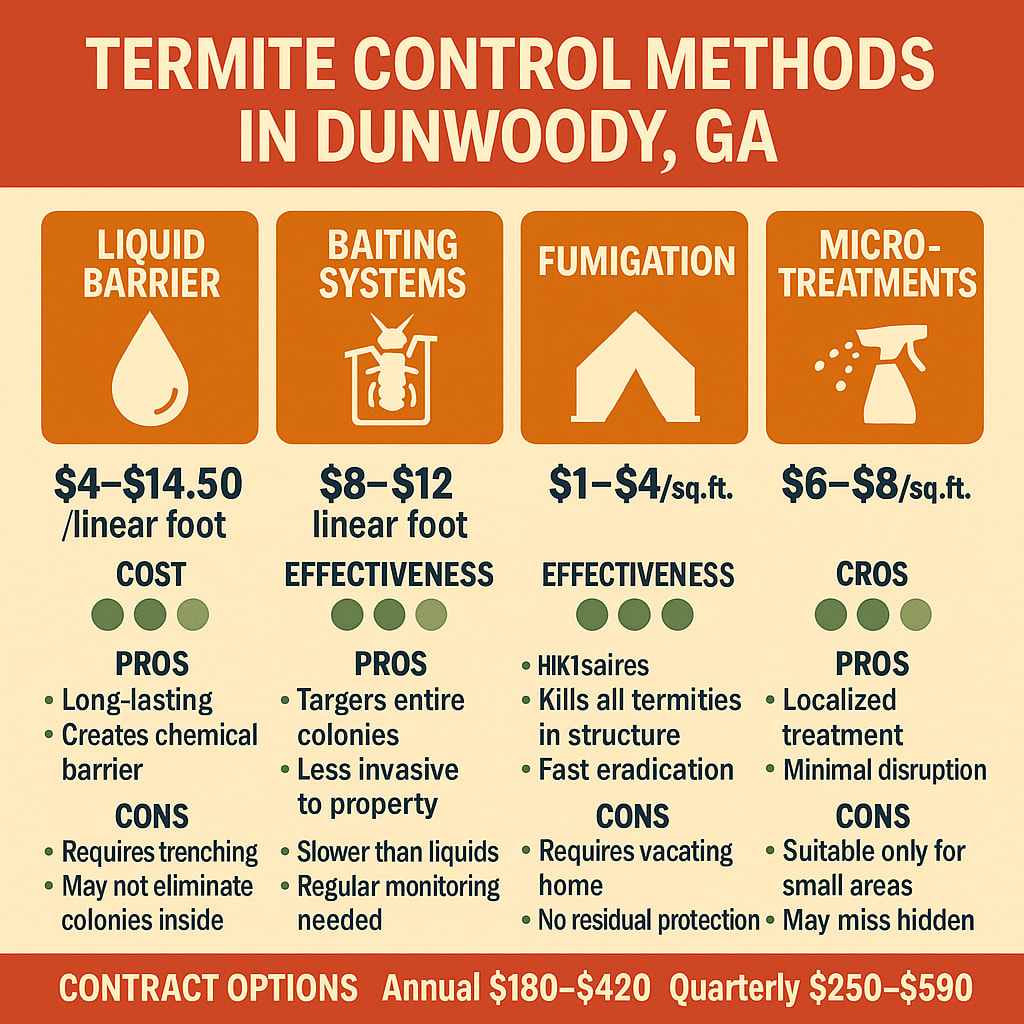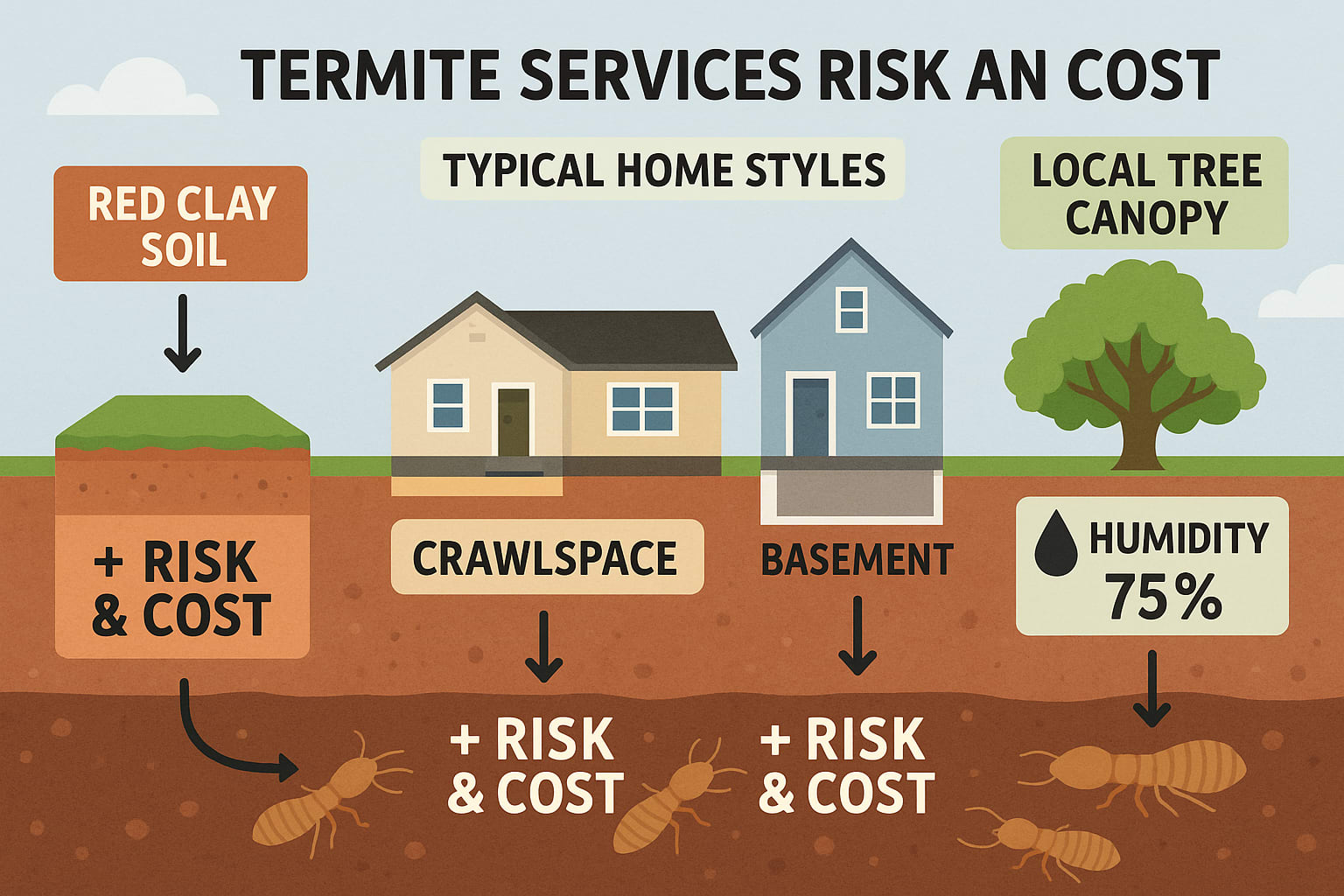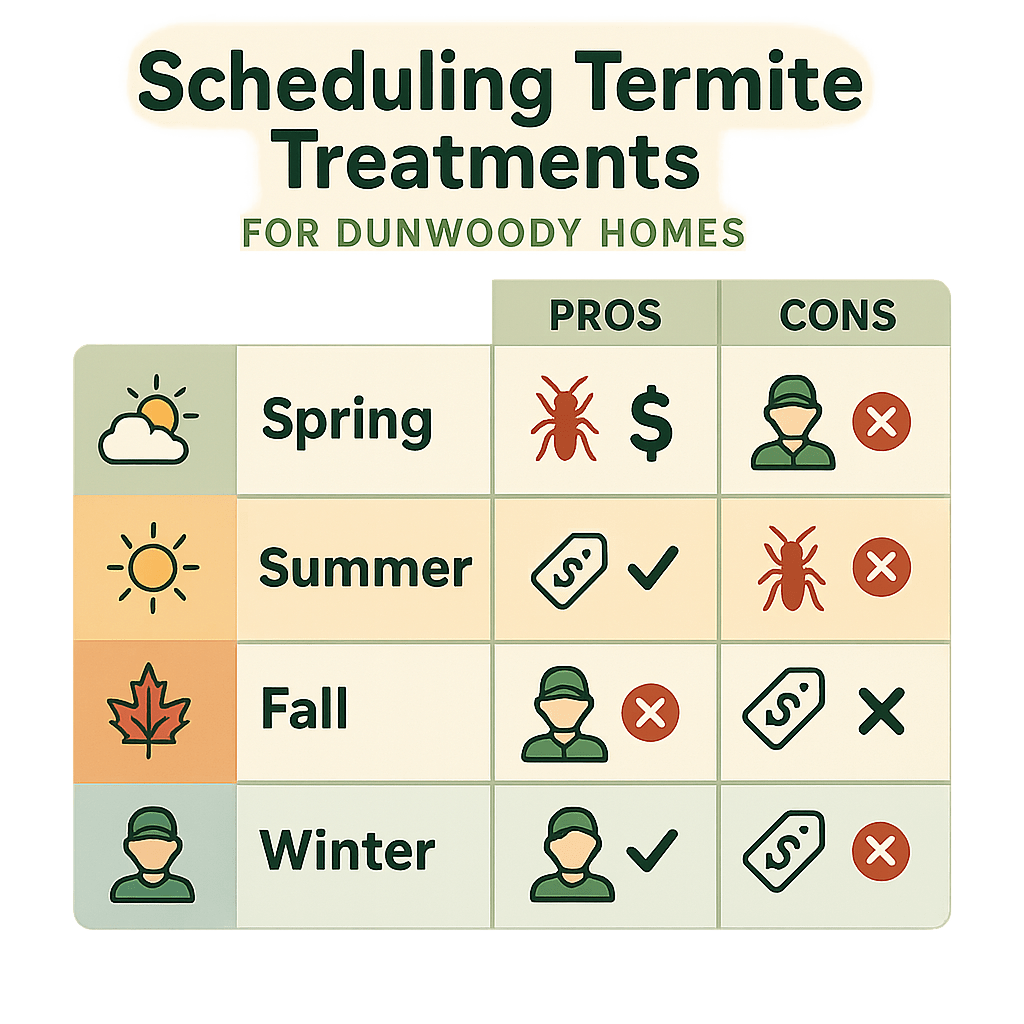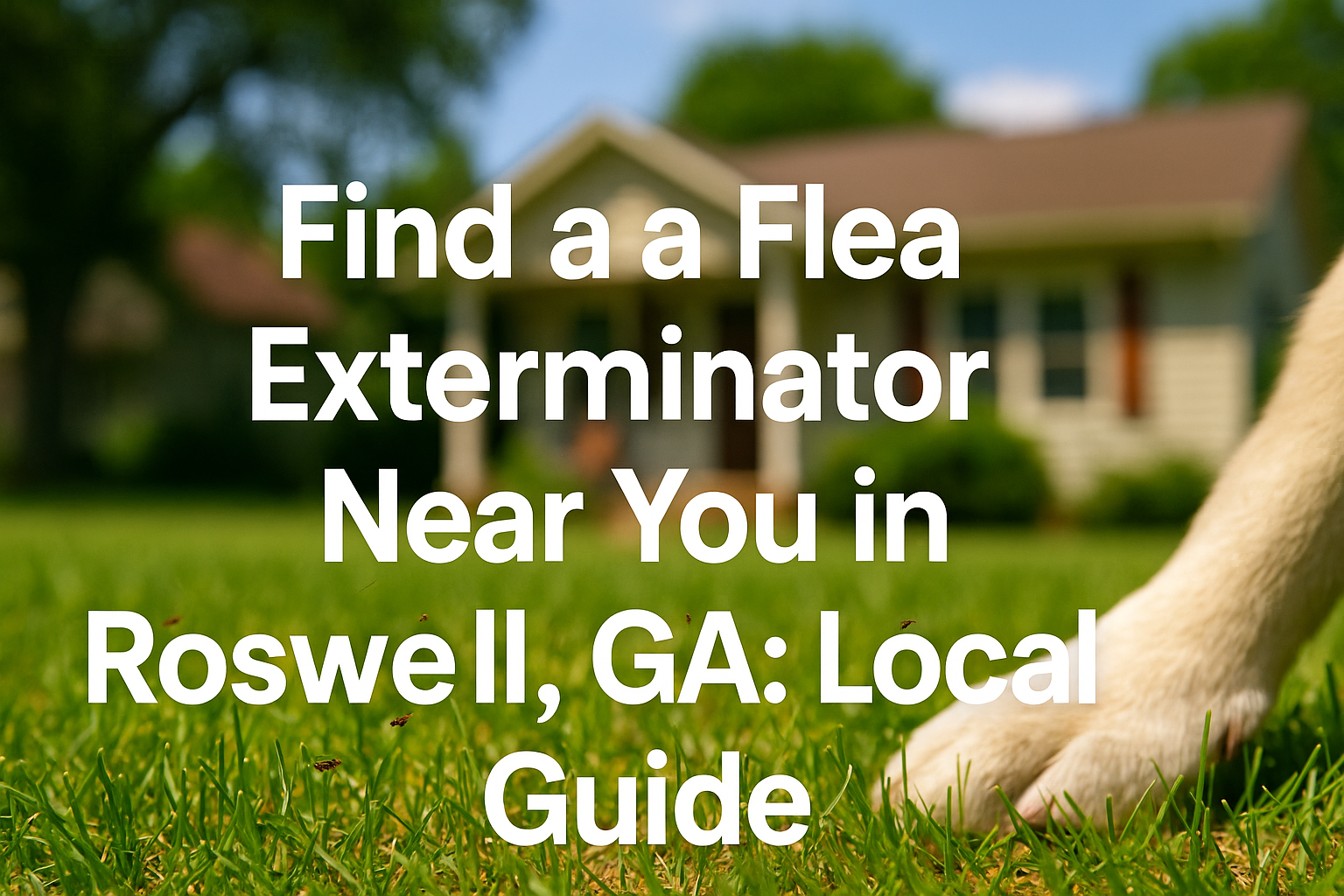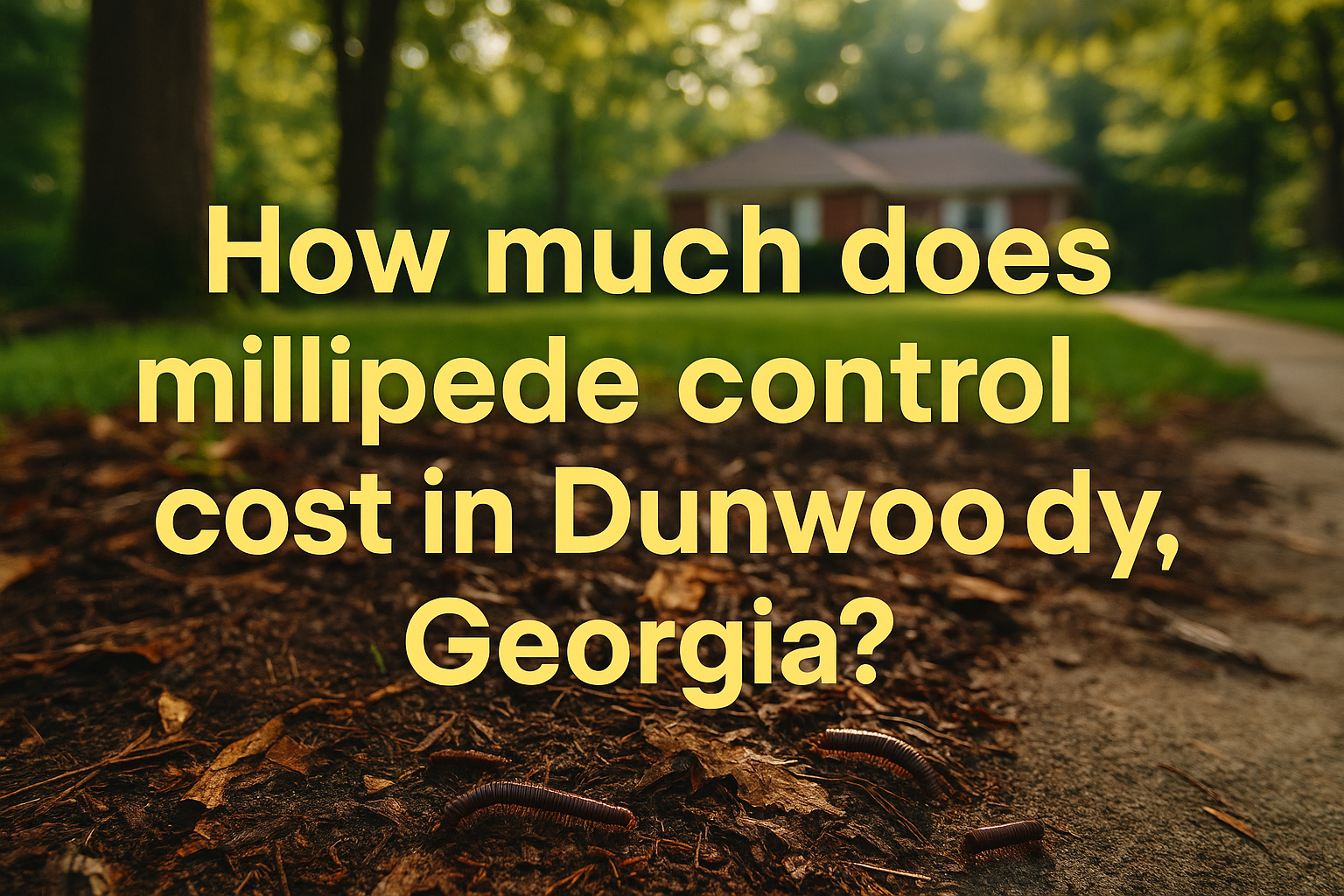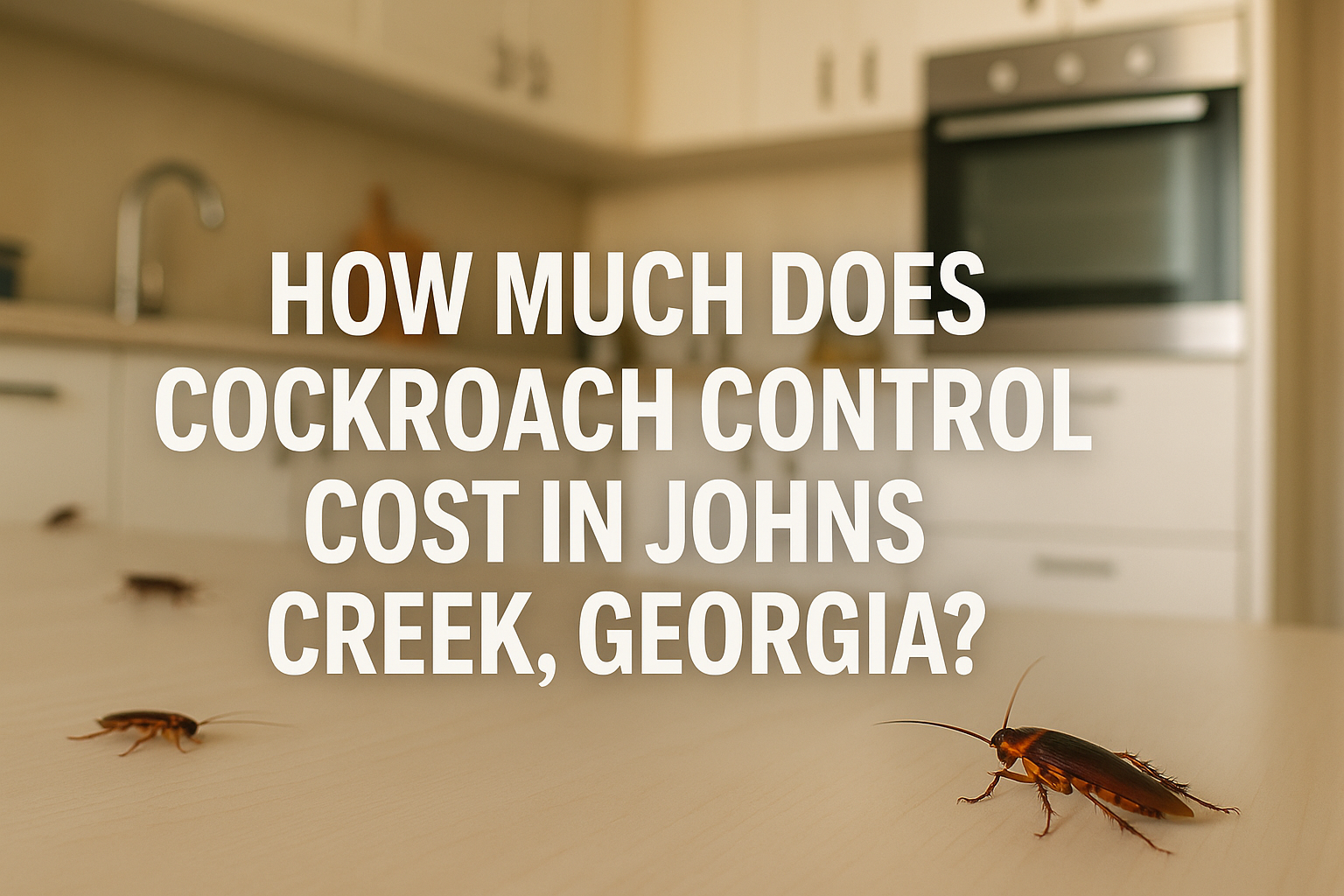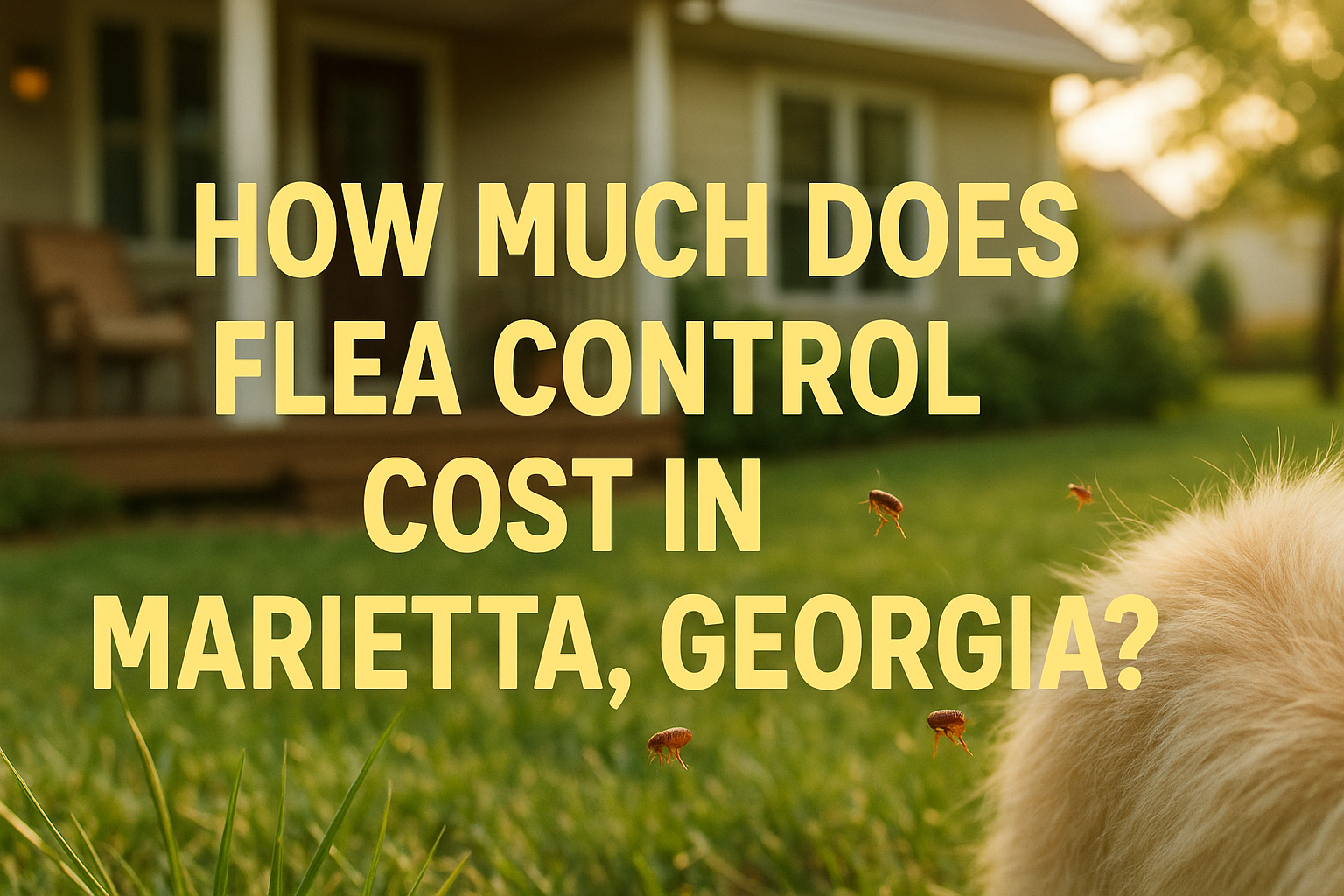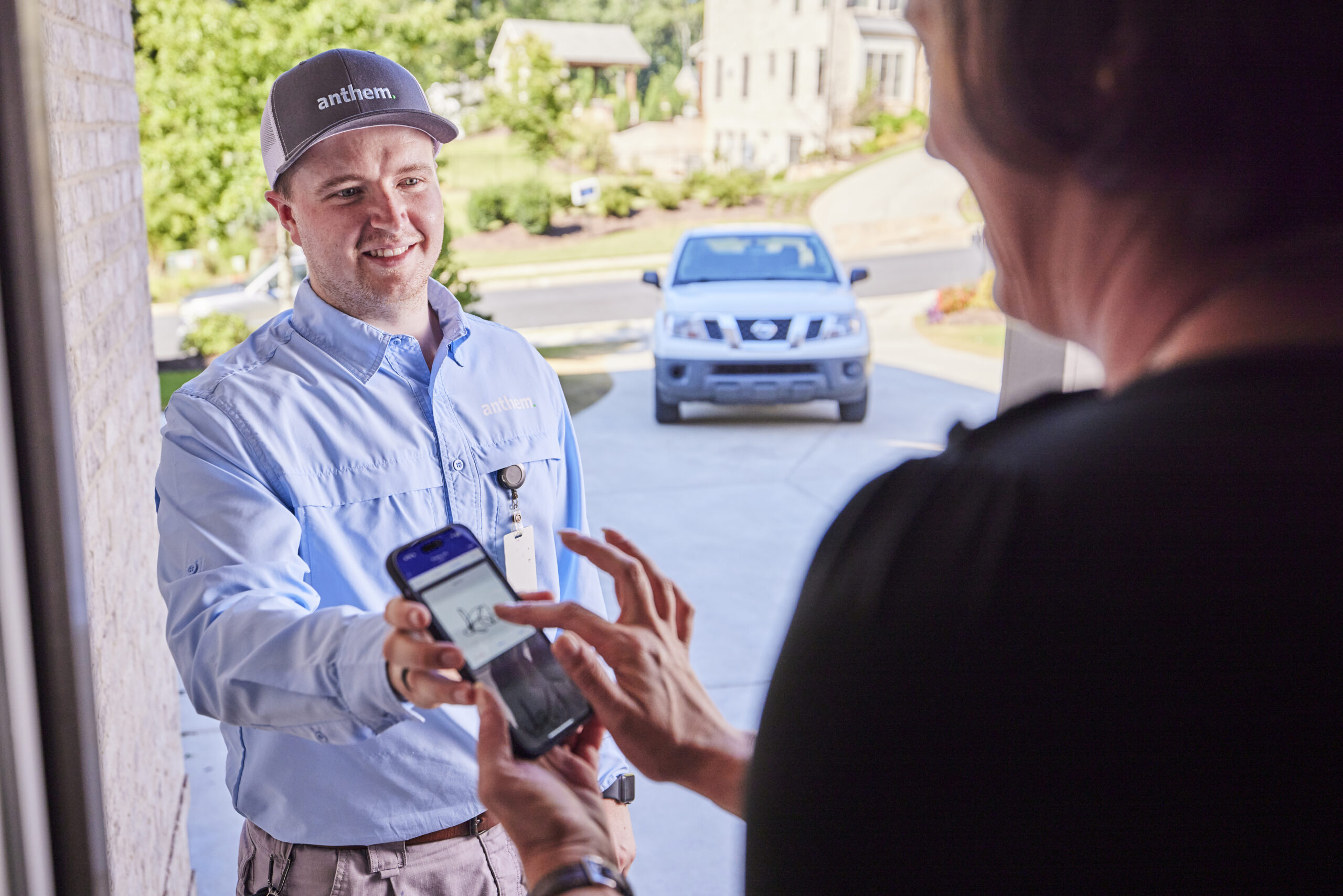Termites in Dunwoody: Why They’re a Serious Homeowner Concern
If you own a home in Dunwoody, you probably know termites are more than just a nuisance—they’re a real threat that’s expensive to ignore. Our local mix of warmth and Georgia humidity is like a five-star buffet for termites, especially the kind that quietly chew through your walls before you even know they’re there. It’s not just talk: termite damage tops millions in annual repair bills statewide, and Dunwoody is right in the heart of that danger zone. Homeowners often check termite control cost Dunwoody to plan ahead and protect their property before damage becomes overwhelming.
The real kicker? Most homeowners’ insurance policies here won’t cover the cost to fix structural damage from termites. That means if you catch them late, you could be paying out-of-pocket for repairs and the pest control bill. This is why quick action isn’t just smart—it’s essential.
Wondering what kind of money you might be looking at? For Dunwoody homes, a one-time termite treatment can set you back anywhere between $200 and $1,000, depending on the size of your place and the severity of the infestation. But here’s the thing: around here, an annual termite contract is what most pros really recommend, because our risk is high and termites can come back. Those contracts usually run $180 to $420 per year—and for a typical 2,500 sq. ft. house, expect a liquid perimeter treatment to be around $525 on average. Most contracts give you the peace of mind of regular inspections, monitoring, and treatment if termites do show up.
Every termite situation is a bit different, so how do you know which solution is right for your home and budget? That’s exactly what we’re diving into next. This guide breaks down the main treatment options available in Dunwoody, explains why costs can vary from house to house, and gives practical tips for keeping termites out for good. Our goal is to make this jaw-dropping issue less overwhelming so you can protect what matters most—your home. Keep reading for a clear rundown on local service options, prevention advice that really works, and what you should expect to pay for the best termite protection in our area.
What Really Drives Termite Control Costs in Dunwoody?
If you’ve started looking into termite control for your home in Dunwoody, you’re probably wondering, “Why does the price seem to be all over the place?” The truth is, there’s no one-size-fits-all number. What you’ll pay can swing quite a bit depending on your unique situation, starting with the most basic factors—the size of your property and just how far the termites have gotten. Understanding the typical termite control cost Dunwoody homeowners face helps set the right expectations before booking a service.
Larger homes or those with widespread, long-standing termite activity are going to need more treatment products and man-hours. Treating a cozy ranch in Georgetown will almost always be less expensive than tackling a sprawling, older home in Wynterhall, especially if those termites have found their way into hard-to-reach crawlspaces or additions.
The treatment method you pick also really matters. Most Dunwoody folks go with liquid perimeter treatments, which are straightforward and manageable cost-wise for the average infestation. Bait stations are a smart upgrade for places where termites are sneaky, or you just want that extra peace of mind—they can cost more at the start, but are great for ongoing monitoring without all the guesswork. Full-on fumigation? It’s the nuclear option, and almost never needed around here outside of extreme or rare drywood cases, but you’ll definitely pay for it if it comes to that.
Your neighborhood and property type add more twists to the equation. Dunwoody is a patchwork of different eras—think about all the older homes with basements in Ashford Chase versus newer construction in Perimeter neighborhoods. Older builds, crawlspaces, additions, or signs of previous termite repairs usually mean more labor and chemicals, which bumps up the final bill.
To give you a ballpark: Most one-time termite treatments here run from $200 to $1,000, based on all of the above. If you want an annual service contract that keeps watch and helps with prevention, expect to pay somewhere between $180 and $420 a year. If you’re just getting a checkup or maybe shopping around for peace of mind, preventive inspections usually fall in the $75–$150 range—and good companies will often put that towards future treatment if you need it. Knowing the average termite control cost Dunwoody residents typically pay can help you budget smartly and choose the right plan.
Bottom line: The cost hinges on your home’s size, the scale of the termite problem, which treatment works best for your situation, and even where you are in Dunwoody. Getting a trusted local pro to take a look is almost always the fastest way to find out what you actually need—and to avoid paying for things you don’t.
What Really Drives Termite Control Costs in Dunwoody?
If you’ve started looking into termite control for your home in Dunwoody, you’re probably wondering, “Why does the price seem to be all over the place?” The truth is, there’s no one-size-fits-all number. What you’ll pay can swing quite a bit depending on your unique situation, starting with the most basic factors—the size of your property and just how far the termites have gotten. Knowing the typical termite control cost Dunwoody homeowners face helps set clear expectations before scheduling a treatment.
Larger homes or those with widespread, long-standing termite activity are going to need more treatment products and man-hours. Treating a cozy ranch in Georgetown will almost always be less expensive than tackling a sprawling, older home in Wynterhall, especially if those termites have found their way into hard-to-reach crawlspaces or additions.
The treatment method you pick also really matters. Most Dunwoody folks go with liquid perimeter treatments, which are straightforward and manageable cost-wise for the average infestation. Bait stations are a smart upgrade for places where termites are sneaky, or you just want that extra peace of mind—they can cost more at the start, but are great for ongoing monitoring without all the guesswork. Full-on fumigation? It’s the nuclear option, and almost never needed around here outside of extreme or rare drywood cases, but you’ll definitely pay for it if it comes to that.
Your neighborhood and property type add more twists to the equation. Dunwoody is a patchwork of different eras—think about all the older homes with basements in Ashford Chase versus newer construction in Perimeter neighborhoods. Older builds, crawlspaces, additions, or signs of previous termite repairs usually mean more labor and chemicals, which bumps up the final bill.
To give you a ballpark: Most one-time termite treatments here run from $200 to $1,000, based on all of the above. If you want an annual service contract that keeps watch and helps with prevention, expect to pay somewhere between $180 and $420 a year. If you’re just getting a checkup or maybe shopping around for peace of mind, preventive inspections usually fall in the $75–$150 range—and good companies will often put that towards future treatment if you need it. Keeping track of the average termite control cost Dunwoody homeowners pay makes it easier to budget and choose the right plan for long-term protection.
Bottom line: The cost hinges on your home’s size, the scale of the termite problem, which treatment works best for your situation, and even where you are in Dunwoody. Getting a trusted local pro to take a look is almost always the fastest way to find out what you actually need—and to avoid paying for things you don’t.
Why Termites Love Dunwoody—And What That Means for Your Wallet
If you’ve lived in Dunwoody for long, you know our relentless Georgia summers bring thick humidity and heat—prime conditions for termites. Subterranean termites in particular thrive here, having a field day with our red clay soil and the moist, shaded spots around homes. If your place sees a lot of rain or sits near a creek (like some lots in Dunwoody Club Forest), you’re in a hotspot zone whether you realize it or not.
Think your new(er) home in a development like Village Mill is safer? Maybe, but it’s a different ballgame. Slab-on-grade construction can hide a termite’s favorite entry points—tiny foundation cracks or spots where drainage isn’t perfect. Water pooling against the slab makes it even easier for termites to set up shop without being noticed, which can make thorough protection more challenging and detailed work for the pros.
The age and layout of your home really crank up the termite odds (and shape what you’ll pay). Older houses, especially those with wooden crawlspaces or quirky add-ons, can be a maze of hidden dangers—the kind of places where termites settle in for the long haul. More inspection time, more product, and sometimes some creative elbow grease are needed to shield every nook and cranny.
Even landscaping plays a role in the mix. Mature shrubs, lush lawns, and those gorgeous trees lining your street look great but can keep soil moist and let termites move in right up against your foundation. Homes with intricate gardens or beds hugging the brick may need more intensive, careful treatments, which nudges service costs higher. Simply put: the more lush and layered the scene, the more time and know-how it takes to protect your place the right way.
In Dunwoody, no two homes have the exact same risk—or require the exact same approach. All these little details—age, style, yard layout, and even your local microclimate—can tip the scale for termite risk and the price tag for keeping them out. That’s why a local, experienced inspection isn’t just smart—it’s necessary if you want real peace of mind. In our corner of Georgia, one-size-fits-all just doesn’t cut it.
Simple Steps to Keep Termites Out of Your Dunwoody Home
If there’s one thing every Dunwoody homeowner can agree on, it’s that preventing termites is a whole lot easier—and cheaper—than dealing with a full-blown infestation later. Termites thrive in hidden, damp places, so the most practical thing you can do is give them as few entry points as possible. Let’s walk through some straightforward tips that truly make a difference.
- Stay Dry: Termites love moisture. Make sure your downspouts and gutters push water several feet away from your foundation. Fix leaks right away, and don’t let water pool near your crawl spaces or basement windows.
- Lose the Wood Piles: Extra lumber, firewood, tree stumps, or mulch stacked up against your siding or tucked in the garage are like ringing a dinner bell for termites. Move wood debris and mulch beds farther from your home, and keep your crawlspace clear.
- Seal the Cracks: Walk around your home and look for any cracks in the foundation or gaps where pipes come in. Seal up those trouble spots—termites can squeeze into even the tiniest openings.
- Ventilate and Mulch Smart: Good airflow under your house helps keep things dry. Make sure crawl spaces have working vents, and consider using termite-resistant mulch like cedar or rubber if you like your landscaping tidy.
- Annual Termite Checkups: It pays to have a pro take a look, especially if you live in older Dunwoody neighborhoods like Tilly Mill or on those beautiful, wooded lots. Yearly inspections catch problems early—and several local pest control teams offer bundled contracts and discounts for repeat customers.
Here’s a bonus: When you stick with a seasonal maintenance routine, many Dunwoody pest companies drop your contract costs over time. You’re less likely to run into expensive surprises—and your home holds its value.
A quick checklist for every Dunwoody season might look like this: clear out those gutters after every big rain, inspect your foundation, refresh mulch in the spring, and do a walk-around inspection in fall. Put your home on a proactive schedule, and those termites won’t stand a chance.
Get Ahead of Termite Season in Dunwoody
If you’ve lived in Dunwoody for a while, you know the termite buzz starts picking up right as the weather turns warm. Late spring through early summer is prime time for termite swarms – and when these pests start flying, it’s already crunch time for treatments and inspections. The demand for termite services in our area absolutely explodes during these months, and that can mean higher prices and longer waits if you try to book last-minute.
Here’s something most homeowners don’t realize: you don’t have to wait for the busy season. The smartest folks in town are locking in their annual termite contracts during winter or late fall, when the phones are a little quieter at local pest control shops. Not only is it easier to get a convenient appointment, but pricing is often a bit friendlier because the rush hasn’t started yet.
Preventive treatments are far more effective if you get them done before termites start swarming. That means getting ahead of the game, either before spring hits or just as the first warm days arrive. This way, you can stop new colonies from settling in and avoid bigger headaches later on. In neighborhoods that have had historic termite trouble, annual contracts started in the fall are a real game changer—you get the best rate, plus solid year-round coverage.
Here at Anthem Pest Control, and among most local pros, the advice is clear: don’t wait for the swarm. Book your inspection early, lock in your rate, and you’ll save money, time, and probably a bit of stress. Dunwoody’s busy termite season will be here before you know it—getting a jump on the timing puts you back in control.
Get Your Free Termite Assessment in Dunwoody
Why roll the dice with termite damage when you can get peace of mind for free? At Anthem Pest Control, we make it easy for Dunwoody homeowners to get ahead of termite trouble. Our local team will come out, check your place top to bottom, and give you honest answers—all with zero obligation.
Your quote is always free, and if you need help, our customized termite plans are surprisingly affordable. Plus, we back up our work with solid, written guarantees. You’ve got nothing to lose (except the termites). Give us a call at 877-3718-5196 or visit us online and protect your home for good.
Termite Control in Dunwoody: Your Top Questions, Answered
When it comes to protecting your Dunwoody home from termites, there are a few questions everyone wants answered. Let’s clear things up so you know just what to expect—no surprises, just good advice for local homeowners.
- How do you know if termites are hiding out?
You might not see them right away—termites are sneaky. Watch for pencil-thin mud tubes climbing your foundation, little piles of discarded wings, or wood that sounds hollow if you tap it. Still, even sharp eyes miss things, so a professional inspection is your safest bet. - What’s the typical cost to treat termites in Dunwoody?
For a single termite treatment, you’re generally looking at $200 on the low end, up to $1,000 for larger issues. Want annual protection? Most service contracts land between $180 and $420 a year, and that can save you from costly repairs down the line. Understanding the average termite control cost Dunwoody homeowners face helps you plan ahead and avoid unexpected expenses.
- What does an annual termite contract include?
At minimum, you’ll get a once-a-year inspection, year-round monitoring, and—if termites show up again—free or heavily discounted re-treatment. It’s like a safety net for your home and your wallet. - Are certain Dunwoody neighborhoods hit harder?
Termites aren’t picky, but spots like Georgetown, Wynterhall, and Tilly Mill with older homes or mature trees can be trickier. No matter where you live, regular checks are key to peace of mind. - How often should you schedule inspections?
Once a year is the gold standard for Dunwoody. Annual checks catch problems before they get ugly—and expensive. - Is liquid treatment or baiting better?
Liquid barriers are great for instant, broad protection, while baiting systems keep tabs on hard-to-reach spots or unusual layouts. Most times, a pro will suggest a mix that’s a fit for your home’s needs. - Does homeowners insurance cover termite damage?
Unfortunately, it typically does not. Prevention truly pays off. - What’s the first step if you’re worried about termites?
Easy—call Anthem Pest Control. We’ll set up a free assessment and point you to the best options for your place, no obligation. Let’s keep your Dunwoody home strong, safe, and termite-free.

